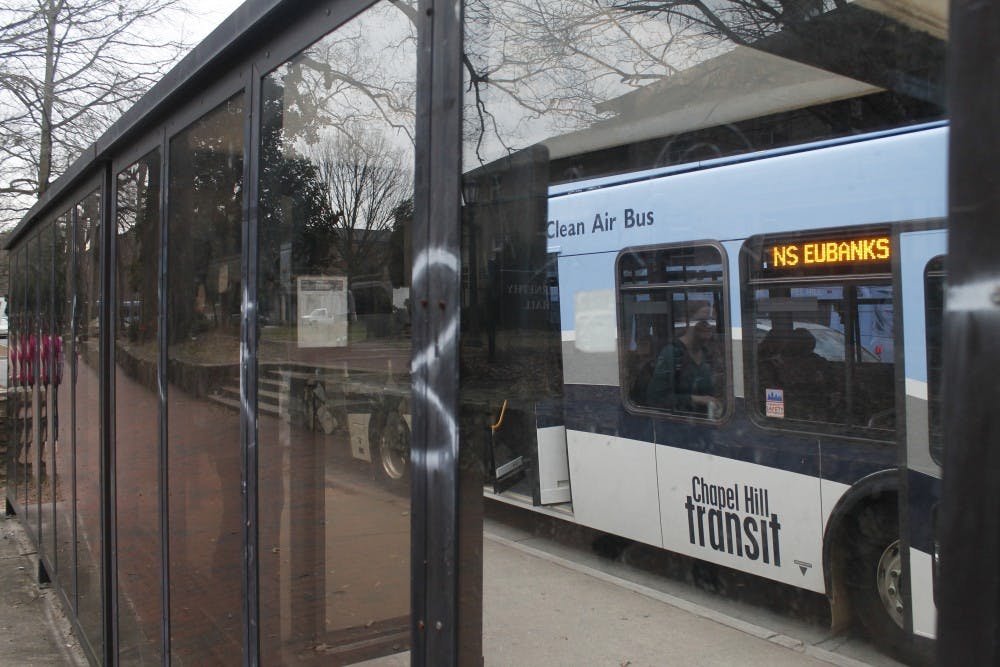The budgetary cutbacks that have caused a reduction in bus services around North Carolina could also start affecting Chapel Hill, according to officials from the towns of Carrboro and Chapel Hill.
In 2018, the state legislature cut funding from the State Maintenance Assistance Program by 26 percent, leaving many urban transit systems concerned about future funding. The towns of Chapel Hill and Carrboro temporarily avoided ramifications using grant funding, but officials must now work with the General Assembly and Chapel Hill Transit partners to avoid any future negative effects.
The SMAP is a program designed to help fund costs associated with transit systems for urban and small-urban communities. The funding is eligible for operational costs ranging from regular maintenance to the pay of drivers and the upkeep of bus stop shelters.
The cuts are due to North Carolina’s declining fuel tax revenue, which the state has tried to alleviate by steadily increasing the tax rate, according to Chapel Hill Council Member Michael Parker.
With the General Assembly now back in session, Parker and other local government officials are hoping to work alongside legislators to achieve their transit goals for the year.
“We’ve spoken collectively with our legislators to see if anything could be done through the legislative process to restore those funds, and hopefully we will get some, or total relief, from those quarters,” Parker said.
The Public Transit Committee — comprised of members from the Town of Chapel Hill, the Town of Carrboro and UNC — has worked with CHT to alleviate the pressure caused by the nearly $700,000 reduction in funds.
The committee was able to absorb these losses with other funds, Carrboro Board of Aldermen member Damon Seils said, but the plan for the future is less certain.
“In the next budget year, the towns and the University will either have to pay more into the system or make budget cuts,” Seils said.




